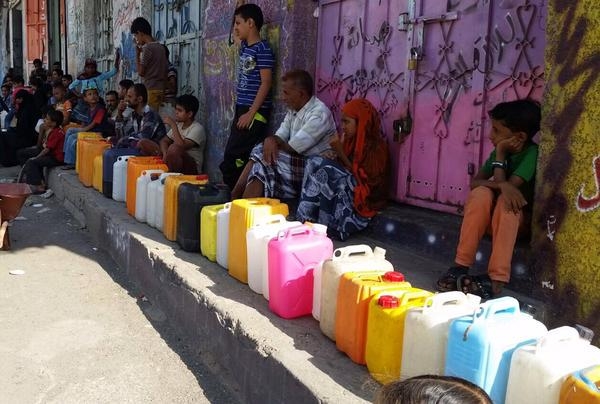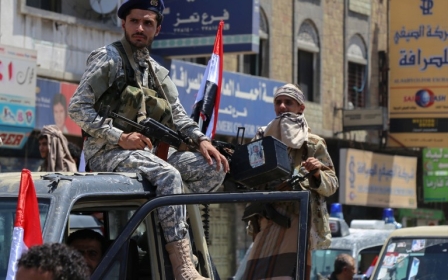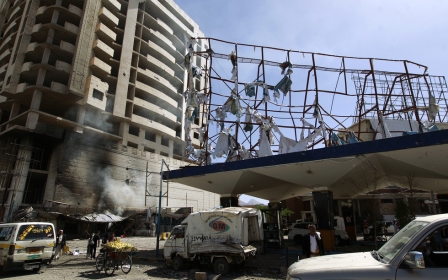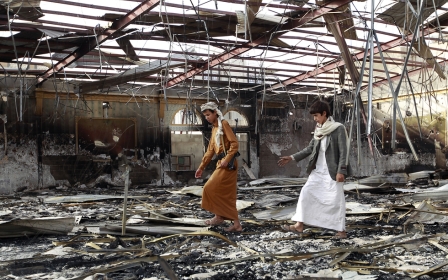Houthis detain activists over plan to ship drinking water to besieged Taiz

A group of Yemeni activists who tried to send water trucks to the besieged southern city of Taiz remain detained on Wednesday, days after being arrested over their role in organising the shipment.
The group of 30 people, which includes journalists and activists, had planned to send a convoy of water trucks some 150 kilometres south from Ibb to Taiz, Yemen’s most populous city.
Taiz, the first Yemeni city to rise up in 2011 against the decades-long rule of ousted President Ali Abdullah Saleh, has been under siege for weeks by rebel Houthi militants.
The Houthis are fighting alongside Saleh’s supporters, and have fought hard to extend their control from the town’s outskirts into its central areas, which are mostly run by fighters loyal to Yemen’s Islamist Islah party.
After months of a tight siege, the humanitarian situation in the city of some 600,000 has deteriorated rapidly.
Eight hundred and thirty children have been killed or injured by fighting in the city over the past year, while 3,400 have contracted dengue fever, according to a report released this week by the city’s Co-ordination Council for Unions and Civil Society Organisations.
Local residents say Houthi fighters stationed on the outskirts of Taiz began blocking access to trucks carrying drinking water into the city last week, causing prices of bottled water to soar.
Activists had planned to drive a convoy of water trucks south from Ibb into Taiz on Wednesday to break the siege.
However, local news sites report that the convoy’s 30 organisers were arrested on Monday during a raid on the hotel where they were holding a meeting.
Among those arrested were a medical doctor, Mohammed al-Maliki, and lawyer and human rights activist Walid al-Kathiri.
Also detained is the group’s organiser, journalist Mahmoud Yassin, who wrote ahead of Monday’s planning meeting that the activists had “a lot to discuss”.
“Everybody has the right to water,” he said.
Middle East Eye propose une couverture et une analyse indépendantes et incomparables du Moyen-Orient, de l’Afrique du Nord et d’autres régions du monde. Pour en savoir plus sur la reprise de ce contenu et les frais qui s’appliquent, veuillez remplir ce formulaire [en anglais]. Pour en savoir plus sur MEE, cliquez ici [en anglais].




